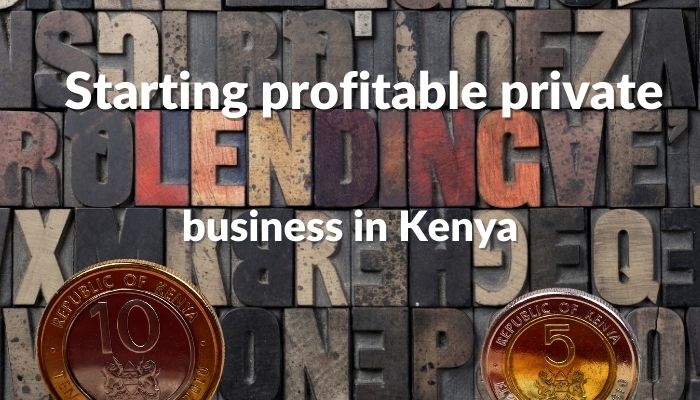At the moment economy is bad almost for everyone following the dire effects of COVID-19 and the many loans that the country is servicing pushing up prices of most basic commodities.
All these and other factors have rendered Kenyan pockets dry in need of support to pay school fees, improve businesses, and hospital bills being some of the hard situations that many find themselves in and in need of some quick money to sort you.
However, banks that are the reliable chief lenders have their long processes that one must follow to acquire the money. And what if you have an outstanding loan that maybe you defaulted and you can no longer access credit facilities even the online money lenders?
Here is where a private lending partner comes in handy as they will be willing to lend you money without considering your credit history.
You can then use your items such as TV, fridge, or microwave and anything that has monetary value to get these loans creating a good opportunity for a private blending business that despite its shortcomings, has been thriving in Kenya.
Interested to begin this venture? This is how to start:
Location
The most pressing financial needs which may require the intervention of private lenders are not back at the rural areas but in urban areas. Your private lending business will thrive better in the city or an urban setting than the rural areas.
Identify the need for private lending
Don not just start lending money to people who might as well not have needed your intervention. This is business and you need to first identify an exploitable gap. People will always have financial needs anyway.
Register your Business
You will need to register your micro-lending company with the appropriate agency. You will also need to obtain all the necessary licenses and permits. And most importantly, you must meet legal obligations required the government to avoid falling into problems.
Draft contract forms
Signed contracts are very recognizable by the law. You only need the person you are lending money to sign a contract form and you can sue them in a court of law in case of anything (which rarely happens if you have collateral) and you will still be safe, not unless it is found out that you forged a document for fraud.
Do not forge signatures – let your clients sign the contract forms themselves. Contract forms are the only thing that makes the agreement between you and the borrower binding and legal.
Determine interest rates and the maximum amount you can lend
You need to determine how much you will charge on your borrowed money in terms of what duration. Most people doing private lending offer loans at 10-15% daily. Depending on your unique circumstances and the market conditions also, determine the rate at which you will charge interest. You also need to determine how much your limit is, depending on how much you have to offer.
Determine valid collaterals
Any client you lend money is a potential defaulter, no matter how much you trust them. You will need collateral when they borrow money, which you will retain or sell if they default, or return to them after they pay back the loan and interest.
You need to determine which collaterals you will take, which may as well be in line with your existing business such as electronics if you are running an electronics shop. The collateral you take must be of much more worth than the amount the client is seeking to borrow, to ensure you are protected in case they default.
Market your private lending business
You had already identified a market gap and knew that most people would need your private lending services. By word of mouth, social medial, or any other local means, send word that you are offering such services. Let potential clients know that they can come to you when they need the service.
When all this is done, you will need a starting capital which can be something starting from Sh3,000 to Sh0.5m and beyond.
Let us see the possible returns:
If you lend out your Sh250,000 to Sh500,000, that is in small quantities to various people for 30 days with 15% daily interest, then at the end of the month, you expect Sh1,125,000 to Sh2,250,000.
Even if you do not lend out the whole amount, whatever amount you lend will grow by 450% at the end of the month but if you feel the interest rate is high, you can lower it and still make money.
The risks
Sometimes as a private lender, you will have to deal with stolen items and this makes you prone to being sued in case they are caught. Besides, they may be given faulty or obsolete items and end up losing money since you cannot resell them.



















